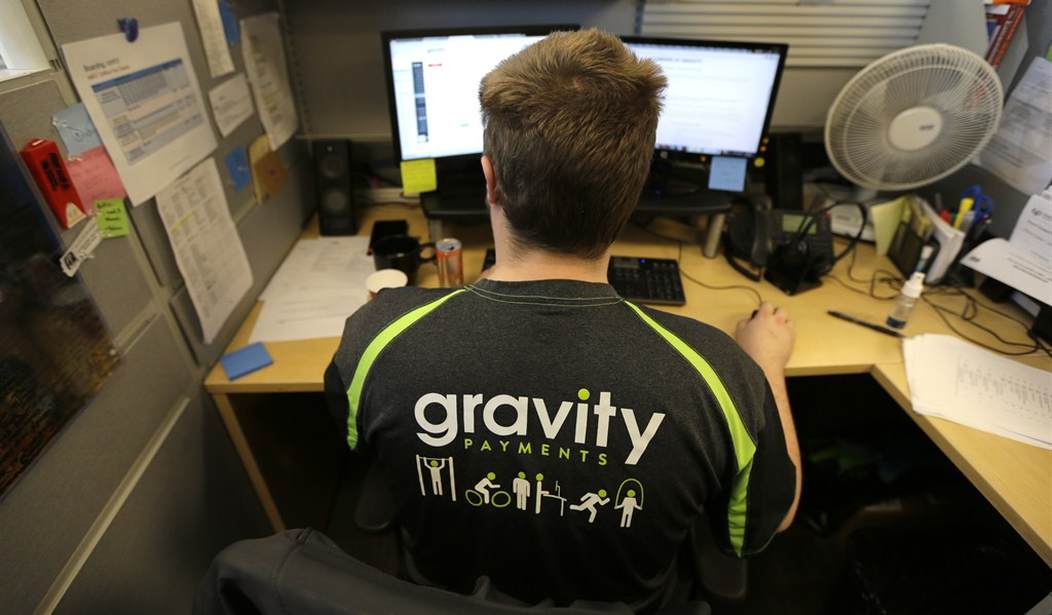Tired of working 40 hours a week? Then Sen. Bernie Sanders’s new legislation may be for you.
The Vermont senator will introduce a bill on Thursday that cuts a traditional workweek down to 32 hours, claiming it’s “not a radical idea.”
In a statement defending The Thirty-Two Hour Workweek Act, Sanders argues U.S. workers should take advantage of their increased productivity.
“Today, American workers are over 400 percent more productive than they were in the 1940s," he said. "And yet, millions of Americans are working longer hours for lower wages than they were decades ago. That has got to change. The financial gains from the major advancements in artificial intelligence, automation, and new technology must benefit the working class, not just corporate CEOs and wealthy stockholders on Wall Street. It is time to reduce the stress level in our country and allow Americans to enjoy a better quality of life. It is time for a 32-hour workweek with no loss in pay.”
In 1938, President Franklin D. Roosevelt signed the Fair Labor Standards Act (FLSA) into law establishing the 44-hour workweek through overtime protections – the first broadly applicable federal standard for working hours in the U.S. Just two years later, the FLSA phased-in today’s 40-hour workweek to the American people, which has remained the federal standard ever since. Before these federal labor standards were established, workers – including children – in the early 19th century were on the job more than 70 hours a week, often in horrendous and dangerous working conditions. In the late 1800s, workers conducted major strikes for an 8-hour workday, coining the historic slogan, “Eight hours for work, eight hours for rest, eight hours for what you will.”
Today, American workers are more than 400 percent more productive than they were in the 1940s. However, millions of Americans are now working longer hours for lower wages. As of 2019, nearly 40 percent of U.S. workers are on the job at least 50 hours a week, and a staggering 18 percent – or 28.5 million workers – are clocking at least 60 hours a week. The average full-time worker in the U.S. now works 42 hours a week – although this estimate does not necessarily account for those working multiple jobs. On top of this, more than 8 million Americans work multiple jobs, with 4.7 million working a second part-time job on top of a full-time job.
Recommended
In a fact sheet about the legislation, the senator pointed to examples of where a shortened workweek is already taking place. France, for example, has a 35-hour workweek and is looking to lower it to 32, while Norway and Denmark enjoy a 37-hour workweek. Pilot programs at UK companies have also experimented with a four-day workweek, finding workers were happier and more productive and the companies enjoyed increased revenue. Other pilot programs have been tried in the U.S. and Canada and found similar results.
The Thirty-Two Hour Workweek Act would:
• Reduce the standard workweek from 40 to 32 hours over four years by lowering the maximum hours threshold for overtime compensation for non-exempt employees.
• Require overtime pay at time and a half for workdays longer than eight hours, and overtime pay at double a worker’s regular pay for workdays longer than 12 hours.
• Protect workers’ pay and benefits to ensure that a reduction in the workweek does not cause a loss in pay
This legislation comes the same day the Health, Education, Labor & Pension Committee is holding a hearing on the same topic.
“We applaud Senator Sanders’ bold initiative that will create a better life for all Americans,” said Vishal Reddy, Executive Director of WorkFour, the national campaign pushing for a four-day workweek. “100 years ago, critics of the 5-day workweek predicted doom, as they worried that a weekend would set the United States’ economy back. Instead, it helped launch us to the front of the global pack by creating a thriving middle class. Once the 4-day workweek becomes a reality, every American will have nearly six years returned to them over their lifetime. That’s six additional years to spend with their children and families, volunteer in their communities, learn new skills, and take care of their health. The data shows that the 4-day workweek is a triple-dividend policy that benefits everyone – workers, companies, and society. Now is the time to act.”

























Join the conversation as a VIP Member